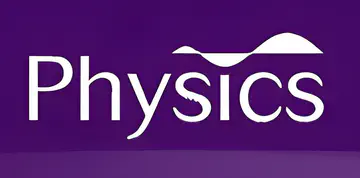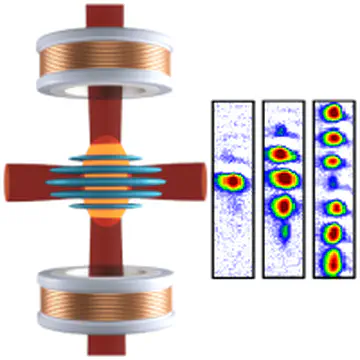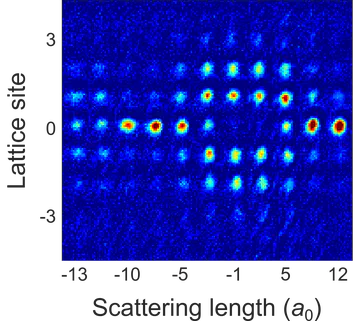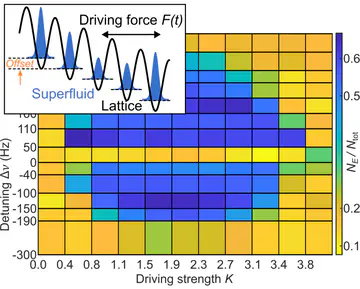Quantum gases in complex lattices
Welcome to the blog of the group of Dr Elmar Haller. We study counterintuitive and intriguing phenomena of quantum physics in lattice potentials. We cool quantum gases down to temperatures close to absolute zero and use them to examine quantum phases and transport problems. Please have a look at our projects in the blog below. If you want to know more or if you want to join the team, please feel free to contact us.
Update July 2024:
We have a postdoc position available. Please see the Open Positions page.**
Recent research
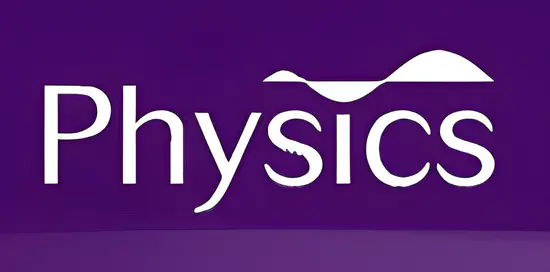
APS ViewPoint ‘‘An Accordion Lattice Playing a Soliton Tune’’
Your article on lattice solitons has been featured with a Viewpoint article by the American Physical Society.

Tunable optical lattices for the creation of matter-wave lattice solitons
We present an experimental setup which provides a versatile environment to study soliton formation and evolution in lattice potentials. Opt. Express 34, 623-637 (2026).
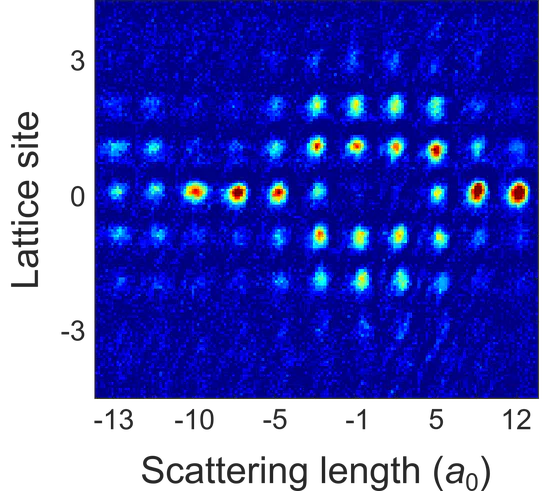
Lattice solitons of matter waves.
We demonstrated the existence of single- and multi-site solitons in an optical accordion lattice, Phys. Rev. Lett. 135, 263404 (2025).

New team member
Ethan Kerr joined the team as a PhD student. Welcome Ethan!
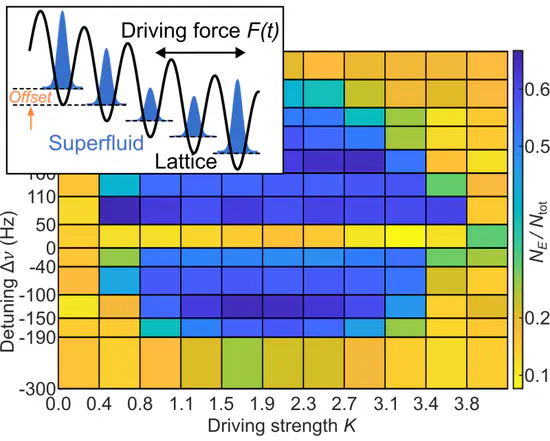
Phonon excitations of Floquet-driven superfluids in a tilted optical lattice
Interactions in Floquet-driven quantum gases cause unwanted heating and excitation modes. We found a general set of resonance conditions that explain this ‘‘Floquet heating’’ for superfluids in optical lattices. Phys. Rev. Research 6, 023323 (2024).
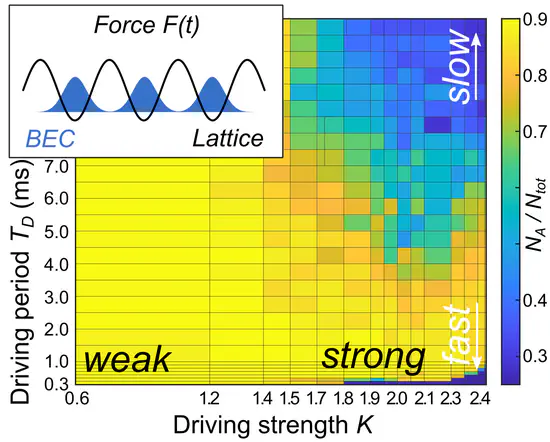
Instabilities of driven matter waves with interactions
We studied the stability of a Bosonic quantum gas in a 1D optical lattice with periodic driving, Phys. Rev. Research 5, 033024 (2023).

New team member
Robbie Cruickshank joined the team as a PhD student. Welcome Robbie!
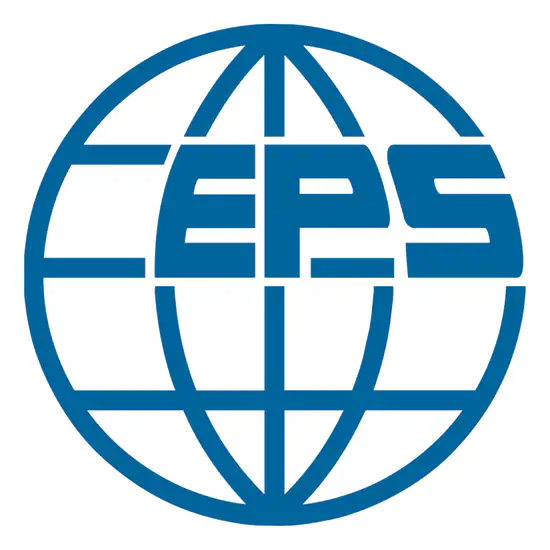
Conference ECAMP14
Matt Mitchell presented our results at the ECAMP14 in Vilnius, Lithuania

Finess Meeting 2022
Our results about Floquet solitons were presented at the FINESS meeting 2022 in St. Martin, Germany
ICONIQ Workshop 2022
Finally, it is again possible to have face-to-face meetings. We presented our results at the ICONIQ Workshop, Imperial College, London.
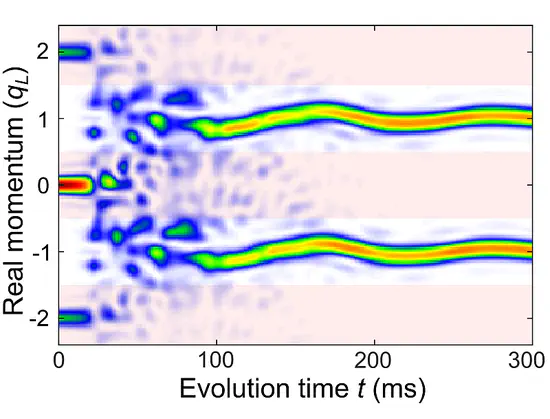
Floquet solitons of matter waves
We observed Floquet solitons of matter waves in periodically driven systems, Phys. Rev. Lett. 127, 243603 (2021).
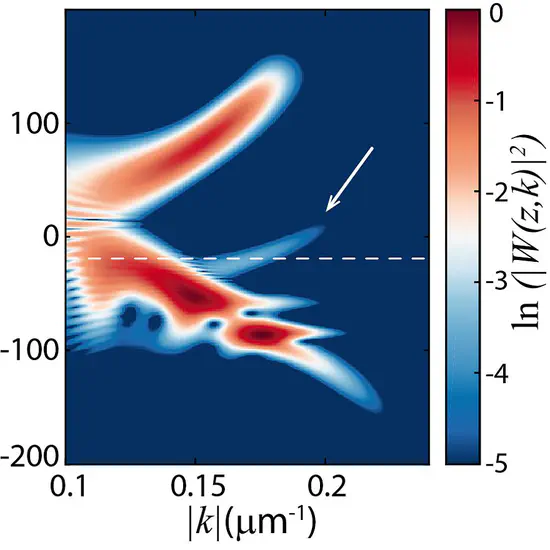
Matter waves with position-dependent interactions
We studied the evolution of BECs with position-dependent interaction strengths. [Phys. Rev. Lett. 125, 183602 (2020)].
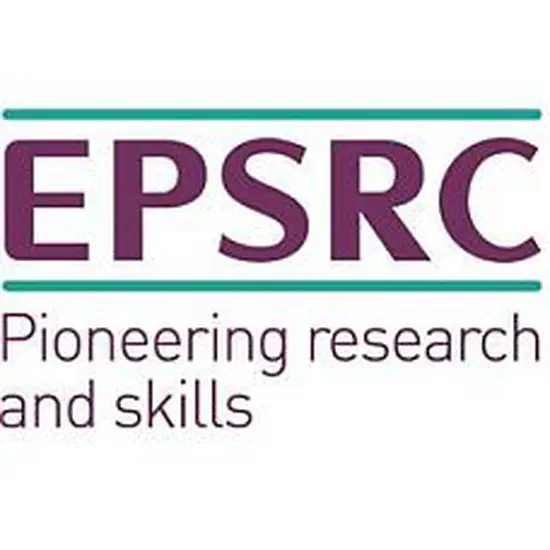
New Investigator Award
Hurray, we got the New Investigator Award by the EPSRC. The award will provide two years of funding for a project about Quantum bright solitons.

PhD viva of Dr Andrea Di Carli
Congratulations to Dr Andrea Di Carli for his PhD viva. Well done."
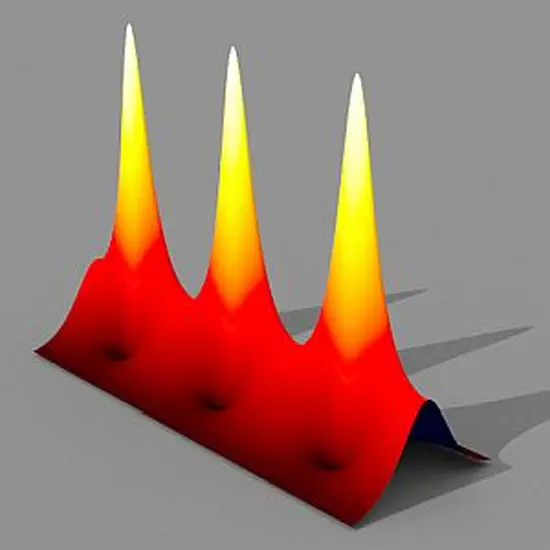
Breathing and higher-order excitations of solitons
We studied the excitation modes of bright matter-wave solitons, with the goal to observe breathing, higher-order excitations and splitting. [Phys. Rev. Lett. 123, 123602 (2019)].

New team member
Matt Mitchell joined the team as a PhD student. Welcome Matt!

PhD viva of Dr Craig Colquhoun
Congratulations to Dr Craig Colquhoun for his PhD viva. Well done."
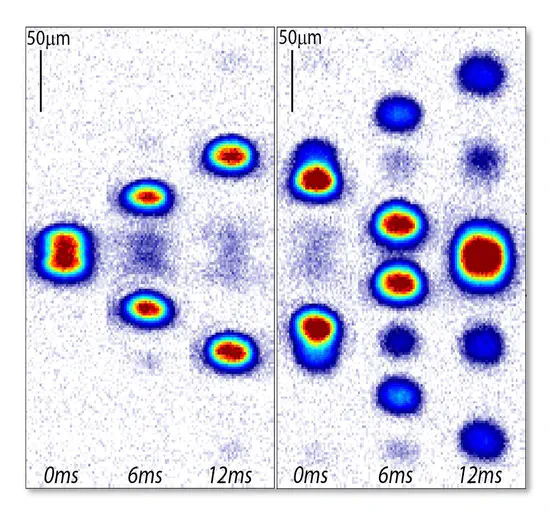
Measurement of micro-g acceleration
We managed to measure micro-g accelerations in an earth-bound experiment with freely expanding BECs [New J. Phys. 21, 053028 (2019)].
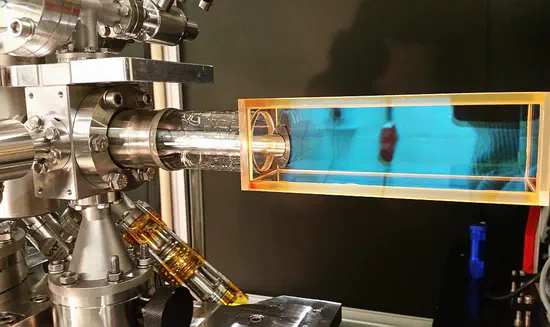
Experimental setup
Our setup is designed to cool a gas of cesium atoms from room temperature to quantum degeneracy. We reach Bose-Einstein-condensates of 300,000 atoms in 12s.
Latest News
